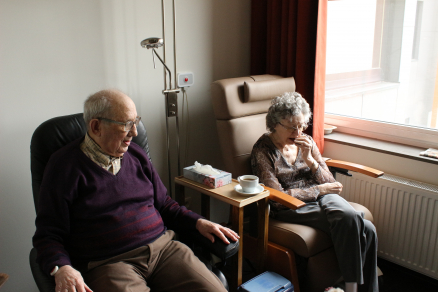The first signs of Dementia - some early warning signs
Early signs of dementia are often subtle and vague, hard to put a finger on, but there are some key indicators that all might not be well. These symptoms might show themselves at different times, and/or a number may come on at the same time. The general advice is that is a person is showing strong signs of at least one of these symptoms, then it is advised to seek medical advice.
Most common symptom
The most common symptom that most people think of when they think of dementia signs is ‘memory loss’. It’s perfectly normal to forget things occasionally, we all do that, whether that be an appointment or forgetting something from the supermarket we were meant to buy. However, someone with dementia will forget things far more often, or not remember things at all. One of the main signs of dementia when it comes to memory loss is a person’s ability to remember details/people from quite some time ago, but to have a lot of difficulty with recent events. We often hear stories of people clearly remembering details about their wedding 20 years ago, but struggle to remember what they did on their wedding anniversary last week. Dementia robs people of their most recent memories.
Confusion and disorientation
Another key symptom is increased confusion and disorientation. This is often linked closely with memory loss. People will become confused about finding their way to a particular place, or end up at a location and not remember how they got there or how to return home. Observers often describe people as ‘wondering’ as they are lost. This may not be the case. The person with dementia may be looking determinedly for something that isn’t there anymore, such as a building etc.
Mood and personality changes
Mood, behavioural and personality changes are another key sign that dementia has taken hold. People with dementia are often prone to swift mood changes. They can become confused, suspicious, angry, scared very quickly. ON the flip side, people may become uninhibited and outgoing. The important thing to remember is the inconsistency in someone’s behaviour patterns. Most of us have mood swings, but if these mood swings are frequent and pronounced, then that is when medical help should be sought.
Lack enthusiasm or interest in everyday activities
Lack of focus, apathy and enthusiasm for everyday life can be another key sign that someone is suffering with dementia. Often this behaviour is attributed to depression, and this may well be the case. (We will pick up on things that look like dementia but aren’t in a later blog), but it needs to be taken as a possible symptom of dementia. It may be a case that the person who has previously enjoyed certain activities, suddenly stops doing them, or loses some of the ability to do them through a lack of concentration.
Inability to carry out every day tasks
Another key sign is someone’s ability to carry out everyday tasks. This is often regarded as the ‘loss of executive function’. A person may remember that they have to do certain things, like cooking a meal because they are hungry and need to eat, but then forget some of the basic steps in the preparation of the meal. A person walking down the street in the morning in their night dress, may have remembered that they need to get up and go to work, but have forgotten some of the key steps in the process of going to work, such as having a shower, a wash and getting changed into work clothes. Another symptom is poor judgement, which can be linked with loss of executive function. An example would be the reduction in ability to wear appropriate clothing in very poor weather.
Language issues
A person having language problems can also be a key sign that someone is showing symptoms of dementia. Everyone has trouble finding the right words sometimes, but someone with dementia may forget simple words, or substitute inappropriate words, often making sentences incomprehensible.
Spatial awareness
A reduction in someone’s spatial skills is another key symptom of dementia. This symptom will often show itself when people show a poorer understanding of judging distances, or directions when driving a motor vehicle being a prime example.
A mixture of quite a few of the symptoms make driving more hazardous for someone showing signs of dementia. Memory loss is apparent, with the person forgetting the ‘rules of the road’. Poor judgement comes into play when deciding when to slow down for example, and obviously spatial skills for aspects such as keeping a safe distance behind the driver in front.
Summary
Some of the symptoms are intertwined. Loss of ability to perform everyday tasks can and does cover quite a few of the other symptoms highlighted, but we have split them out to make it easier to see the tell tale signs that someone close to you may have dementia.
No searching of information will give you a definitive answer until you have an official diagnosis from your doctor or consultant.
We cover a range of articles from early warning signals to diagnosis. Take a look here
Free care finding service






